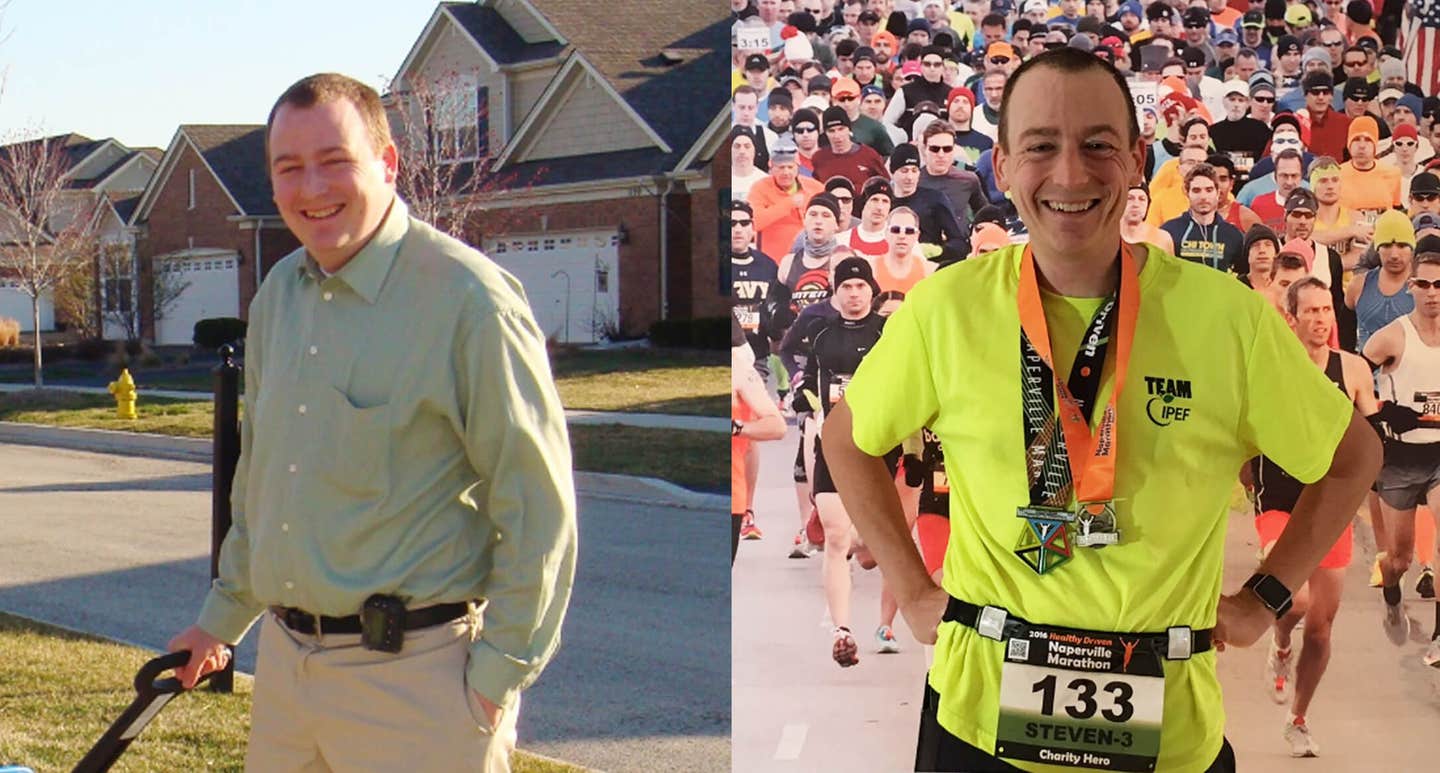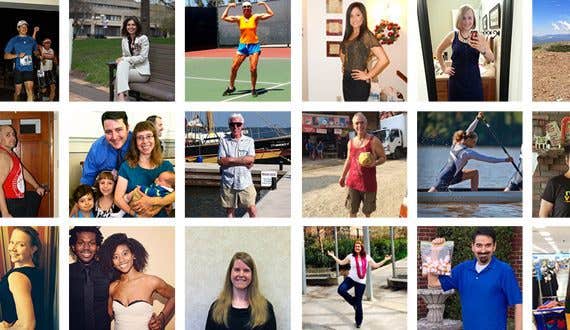
Watching “Forks Over Knives” Changed This Doctor’s Life—and Career
By Steven Lome D.O., R.V.T.,
I fell into two traps. First, I fell into the trap of the Standard American Diet and was well on my way to Standard American Diseases. Second, training at a major university that didn’t emphasize nutrition and lifestyle changes, I found myself practicing standard Western medicine. Fortunately, I was able to work my way out of these traps and now hope to help others do the same—and I have Forks Over Knives to thank.
Trap #1: The Standard American Lifestyle
Growing up in a typical American family, I ate typical American meals: milk and cereal for breakfast, macaroni and cheese for lunch, and meatloaf and mashed potatoes for dinner. There was always some kind of dessert in the house for us to eat at the end of the day. In high school, I ate fast food almost daily.
My sister weighed more than 400 pounds by the time she was in high school. Gradually over the years, my parents weighed more than 300 pounds each and developed type 2 diabetes with no family history of the disease.
After years of medical training, the long hours and high stress levels led me to neglect my own health. Thanks to poor eating habits and practically no regular physical activity, my weight crept up to more than 250 pounds. I was significantly obese.
Trap #2: Traditional Medical Training
I went into medicine for the right reasons: to take care of good, hard-working people and help them through difficult times. Cardiology has always fascinated me, and I knew this is where I could make the biggest impact. Heart disease has been the No. 1 killer of Americans for almost 100 years; surely with all the new medicines and innovative surgical techniques available we could change that statistic.
I trained and worked hard at a well-respected university program. I learned how to order and interpret diagnostic studies, make accurate diagnoses, perform surgical procedures, and understand hundreds of new medications and their side effects.
Looking back, I realize that prevention of heart disease through lifestyle change was just a side note in my training. Heart disease and its risk factors are almost completely preventable and potentially reversible through lifestyle changes, yet this was not taught. Like most physicians, I received absolutely no formal training in nutrition.
Initially, I didn’t really appreciate the importance of nutrition and lifestyle change as part of my practice. Medications seemed like the sensible answer: If cholesterol is high, give a cholesterol medicine. If blood pressure is high, give a blood pressure medicine. We wanted lab results to be within acceptable range and would have long talks with patients who did not take their medicines as prescribed. Yet despite all the medications and procedures, patients were not getting much better. They frequently still had heart attacks and strokes. Their overall quality of life was quite poor, they suffered medication side effects and spent too much money on prescriptions.
Putting It Together: A Lifestyle Breakthrough
About four years into my cardiology practice, I was in a rut trying to figure out how to better help my patients. Meanwhile, I had started to suffer from my own obesity-related ailments. It was time for a change in my approach.
It had become increasingly clear to me that heart disease is caused by poor lifestyle habits. Therefore, the best treatment for heart disease is improving lifestyle. Everyone knows they should eat fruits and vegetables and avoid fatty, sugary, and salty foods, so that is exactly what I advised my patients to do.
I began studying the USDA Dietary Guidelines for Americans and following them strictly. I exercised a lot and even trained for and completed two marathons. Yet I still found myself overweight and not feeling as well as I should.
Then it all came together when Netflix suggested that I watch Forks Over Knives. I had never heard of a whole-food, plant-based diet and its potential to reverse heart disease. At one point, I became upset, feeling somewhat mislead because this information had not been covered in our traditional medical training.
I quickly transitioned myself to a whole-food, plant-based diet and lost 50 pounds in six months. For the first time in my adult life, I reached my ideal body weight of 170 pounds. I now make sure that all my patients with heart disease understand the extent to which diet and lifestyle have caused their illness—and that a whole-food, plant-based diet and other lifestyle changes are essentially a cure. I encourage my patients to watch Forks Over Knives and explore the Forks Meal Planner. I spend a majority of each patient visit doing what I can to help them succeed with healthy lifestyle changes.
These days I’m finally seeing the transformative changes in my patients’ health that I was longing to achieve. To be able to reduce and frequently eliminate medications, while avoiding heart procedures that have potential complications, has been very rewarding.
This change in my approach to medicine has changed my career path as well. I recently relocated my cardiology practice to bring lifestyle medicine centered around a whole-food, plant-based diet to the greater Chicago area. I am privileged to work closely with Dr. Kim Williams, immediate past president of the American College of Cardiology, current Chief of Cardiology at Rush University, and a strong advocate of plant-based nutrition.
I have dedicated hundreds of hours of my time and many resources into a free website, HeartStrong.com, to help educate patients about lifestyle medicine and a whole-food, plant-based diet. While this is still a work in progress, I hope it becomes an authority for information about preventing and reversing heart disease through lifestyle medicine.
My wife has been more than just supportive. As a family physician with a passion for preventive medicine, she also immediately switched to a whole-food, plant-based diet, and we have successfully transitioned our five wonderful children as well. Both of my parents are approaching their ideal weights and have eliminated their medications through plant-based nutrition. Several years ago, my sister lost 300 pounds through surgical weight loss, but now she’s maintaining her weight with a predominantly plant-based diet.
Thank you, Forks Over Knives! You have saved the lives of thousands of people and potentially millions more. You have dramatically improved my health and my family’s health and opened my eyes to a powerful new tool to transform my patients’ health. Now, through HeartStrong.com and my clinical practice, I will strive to do all that I can to push the plant-based movement forward!
Has a whole-food, plant-based diet impacted your life?
We would love to hear about it!
SHARE YOUR STORY
Join our mailing list
Get free recipes and the latest info on living a happy, healthy plant-based lifestyle.
By providing your email address, you consent to receive newsletter emails from Forks Over Knives. We value your privacy and will keep your email address safe. You may unsubscribe from our emails at any time.
